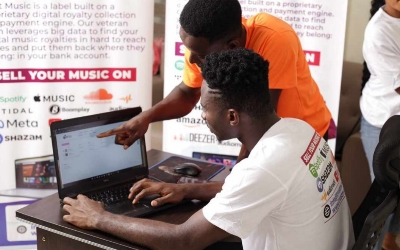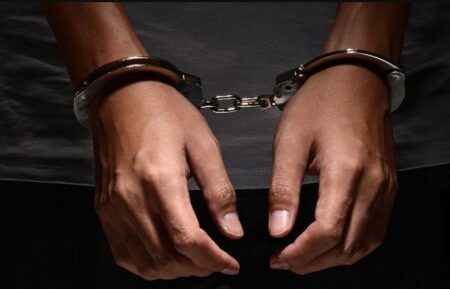How to Restore Your Facebook Account if It Was Hacked
I hope you will never discover that your Facebook account has been hacked or hijacked. It’s a dreadful feeling, and I feel for you, for the agony you’ll go through over time and maybe money to reclaim legal ownership of your account.
Allow me to walk you through the healing process. Following that, I’ll give you some proactive security tips you may use to avoid this horrible moment from happening or at least lessen the odds that it will.
3 Reasons your Facebook Account May Got Hacked
Scenario 1. You allow a family member or friend to “borrow” your Facebook account on your computer or phone. They then consume stuff, publish messages like you, or befriend strangers.
Solution: First, use Facebook’s security page to identify where your account is already signed in.
This list should also serve as a reminder of all the devices you have previously accessed on Facebook. This screenshot was taken after discovering (and subsequently deleted) an outdated Windows laptop that I hadn’t used in years off the list. I haven’t been to that state in years, so the geo-location algorithms can be a little wacky.
Even if your account hasn’t been hacked, it’s a good idea to check this screen regularly to ensure you haven’t accidentally authorized a login.
If you don’t recognize (or use) any of the devices in this list, sign out of your account by clicking the three vertical dots on the right.
Next, create a new password for yourself. Also, remember to sign out of Facebook (and Messenger) before lending your cellphone to anyone in the future.
Scenario 2: Someone creates a new account using your photo and name. Then they try to attract your Facebook friends to their account.
Remedy: There isn’t much you can do except assure folks you’re still you and disregard the impostor. This should serve as a caution if you receive an offer of friendship from someone you believe you’ve already become friends with or from someone you haven’t engaged in years.
A word of advice: send them an email or text inquiring if the request is legitimate.
Scenario 3. The doomsday scenario: Someone guesses your password and then locks you out of your account.
This is the most significant issue, and how you resolve it will be dictated by what else you linked to your Facebook account and how desperate you are to recover it.
This is what happened to Elizabeth, a book author. For four months, she collaborated with two separate friends who were IT specialists and a lawyer. She had two aggravating elements that made it impossible to restore her account.
First, she used Facebook ads to promote her books, so she had connected her login to her credit cards.
Thus her login was linked to her credit cards. As a result, the hacker charged her card with their promotions to entice additional victims to expose themselves.
The second difficulty was creating an account with her pen name and random birthday date.
Facebook requests that you scan your ID during the recovery procedure to confirm your identity. I grew concerned for myself when she told me this.
For years, I took satisfaction in declaring January 1st as my Facebook “birthday.” Now she warned me that I would be in big trouble if my account were hacked.
She ultimately changed her password, but the hacker quickly reset and took over her account again.
“I tried to contact someone at Facebook for assistance, but I couldn’t get anyone on the phone,” she explained. Before the pandemic, the corporation had a special phone hotline for industry insiders, “but this was removed,” she explained. By calling her bank, she was able to stop the credit card charges.
“I was losing sleep trying to stay one step ahead of the hacker.” My entire life was placed on hold as I dealt with the problem.
I hadn’t done any work in months. “I ended up updating the passwords on almost 30 separate accounts.”
3 Possible Solutions
1. Now is a fantastic moment to unsubscribe from Facebook.
The problem is that you have someone pretending to be you who may use your identity to get into illegal and uncomfortable circumstances.
Not to mention that they may attempt to use bank accounts connected to your account or establish credit cards in your name. (We’ll get to it in a minute.)
2. Attempt to reactivate your account on your own, using Facebook’s cryptic and sometimes inconsistent instructions.
That is how most people I know have attempted it. However, you will shortly discover no straightforward method to accomplish this.
You must interact with Facebook support via someone else’s account, which appears somewhat paradoxical, so perhaps your spouse or friend is ready to assist. (Don’t be tempted to create a second account; doing so may result in the cancellation of both of your funds.)
Then, to regain your account, you must select one of many choices (finding an illegal post, a version that uses your name and images) and enter the rabbit hole.
If you use Facebook to log into other online services, you must sever these ties; otherwise, a hacker can compromise your other accounts.
If you, like Elizabeth, have linked your credit card or other bank accounts, you must contact these organizations to get these charges reversed.
Begin by attempting to access Facebook from earlier devices: possibly the hacker hasn’t immediately logged you out.
3. Make use of a third-party data recovery service, such as Hacked.com.
This will cost you $249, but the firm will be persistent and return your cash if they cannot assist you. A year’s worth of digital protection is also included, which would typically cost $99.
However, make confident that you are not hiring any random hacker taking your money and doing nothing else.
Measures of Active Security
If you haven’t been hacked (yet) and are feeling a bit uneasy reading this, here are a few actions you can do to secure your Facebook account, or at the very least, decrease the pain points if it is hacked.
Begin by completing at least one of them today, and make sure to meet all of them as quickly as possible.
1. Add extra login security to your Facebook account.
Facebook provides several perplexing options, but the one I recommend is to utilize a two-factor authentication program such as Google Authenticator. (You may begin by visiting this Facebook page.)
Two-factor authentication (commonly known as 2FA) employs an Android or iOS smartphone app as part of the login procedure.
After you enter your login and password, Facebook prompts you to enter a set of six digits produced by the program. Because these numbers vary every minute, you must have your phone nearby while logging in.
If you want to get more credit, take the time to enable this second-factor approach on all of your other accounts, including any banks or credit card providers that support it (sadly, too few do).
2. Check Facebook to check if you have any payment methods set up.
I was astonished to discover my PayPal address was linked to my Facebook account while writing this essay – and I thought I was being cautious about my Facebook security. There are two possible locations to examine.
First, there’s the Facebook Pay page, which reveals if you’ve set up any credit cards to make direct donations to individuals or organizations. To delete any ad payment methods, go to this other site.
If you are operating any ad campaigns for your company, you must first halt them.
3. Uninstall any related applications or websites.
If you used your Facebook credentials to sign in to third-party applications, now is the time to examine and uninstall them (you can find the appropriate page here). The same may be said for deleting any business integrations.
You automatically lose the ability to log in to these other services, but you also safeguard yourself if your account is hacked.
If you have a Facebook business page, at least two persons should have admin access.
(Choose Page Settings > Page Roles from the menu.) If your company’s account gets hacked and you are the only admin, it will be very hard to recover. Second-factor authentication should be enabled for this contact as well.
4. Examine the email contacts on your account (using this Facebook page).
You should have at least one other contact email address (or more) that Facebook may use to send you notifications if your primary email address is hacked. Of course, different passwords should be used for these several email accounts.
I recognize that this requires a significant amount of time and work, and there are several locations on the Facebook settings pages that you will need to visit and take notice of.
And, because Facebook likes to modify its settings, the URLs listed above may no longer operate in the future.
If these efforts to improve your security haven’t annoyed you, you might want to keep working on it.
I propose the Jumbo smartphone app for iOS and Android and Avast One (available on Windows, Mac, iOS, and Android). Either can assist you through the various processes required to safeguard your Google, Twitter, and other accounts.
Wisdom Parting Words
Consider your options before you click. If you receive a message from what appears to be a social media firm informing you that your account has been hijacked, do not click on any links or contact any phone numbers listed in the message. This might be a hacker’s enticement. Instead, go directly to the website or use its app.
Keep an eye out for anything out of the ordinary. Look for communications you didn’t send, postings you didn’t make, or purchases you didn’t make.
These might indicate that someone has guessed your password or hacked your account. If you’re lucky, it may be a naughty adolescent utilizing one of your laptops.
Kindly read all the Latest News, Entertainment News and gossips here. Follow us on Facebook, Instagram, Twitter, YouTube and Telegram.





![Wow! Talented student builds helicopter, an excavator, watercraft & game controller [Video]](https://ghananewsprime.com/wp-content/uploads/2023/11/mii9cz6hasc-450x253.jpg)